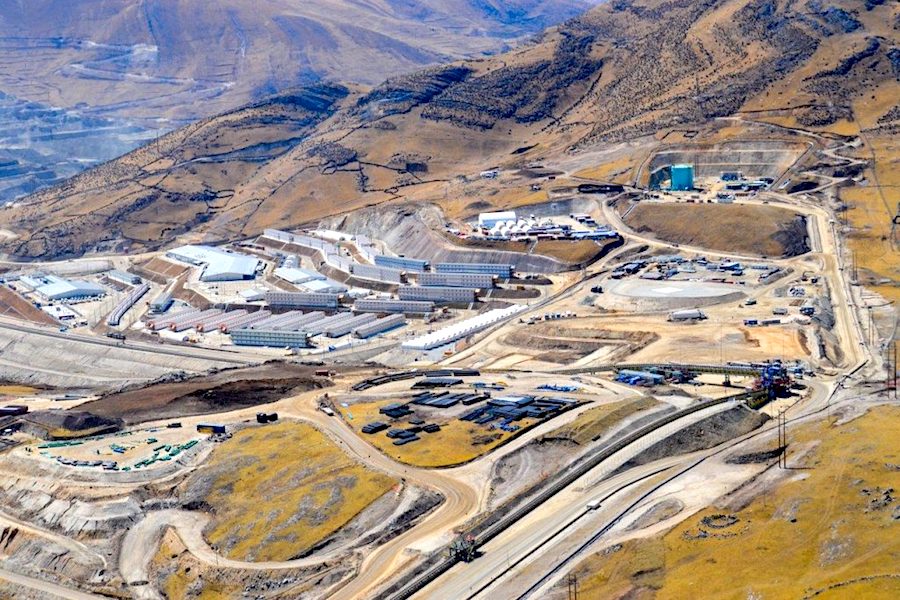

Peru communities to allow Las Bambas copper mine restart after 51-day shutdown
Reuters | June 9, 2022

Las Bambas is one of the world’s largest copper mines. Credit: MMG.
A group of indigenous Peruvian communities on Thursday agreed to temporarily lift a protest against MMG Ltd’s Las Bambas copper mine that forced the company to halt operations for more than 50 days, the longest in the mine’s history.

According to meeting minutes signed on Thursday afternoon, the truce will last thirty days and the communities and the mine will engage in talks during that time.
Las Bambas will immediately seek to restart copper production, although executives have warned that coming back to full capacity will take days after a prolonged suspension.
Peru is the world’s No. 2 copper producer and Chinese-owned Las Bambas is one of the world’s largest producers of the red metal. The protest and shutdown had caused a major problem for the leftist administration of President Pedro Castillo, who is under pressure to grow the economy and had struggled for weeks to broker a restart deal.
Las Bambas alone accounts for 1% of Peru’s gross domestic product.
The protest was started by the communities of Fuerabamba and Huancuire in mid-April, who say Las Bambas had not honored all of its commitments with them. Both communities sold land to the company to make way for the mine, which opened in 2016 and is notorious for its recurrent social conflicts.
The two communities entered the mine and settled inside, forcing Las Bambas to halt operations. While Fuerabamba was evicted soon after that, Huancuire had managed to remain inside.
Under the agreement, Huancuire will no longer protest inside mine property. During the truce, Las Bambas will also halt construction of its new Chalcobamba open pit mine, set to be located in land formerly owned by Huancuire.
At the meeting, community leaders also demanded jobs for community members and for the reshuffling of top mine executives, who they blame for causing social conflicts.
Las Bambas has agreed to an “evaluation and restructuring of the executives” who participate in negotiations with the local communities.
(By Marcelo Rochabrun; Editing by Mark Porter and David Gregorio)
No comments:
Post a Comment